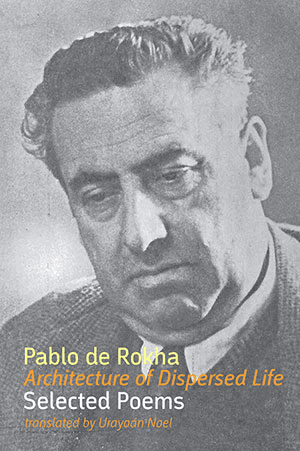Shearsman Store
de Rokha, Pablo
Pablo de Rokha was born in 1894 in Licantén, Chile. He died a suicide in 1968 in Santiago.
Born Carlos Díaz Loyola, his initial schooling took place in the nearby city of Talca and then in San Pelayo, at a seminary. It was here that he was forced to face up to the a contradiction between the religious education and his reading of authors such as Voltaire. It was also at this stage of his life that he began to adopt the pseudonym "de Rokha"; his fellow students were already calling him “Piedra” ( Stone ), partly because of his character but also because the name of his home town, Licantén, means “land of the men of stone". After completing his secondary education he entered Santiago University's Faculty of Law and Engineering, but abandoned his studies in order to devote himself to literature. He also worked as a journalist at the newspapers, La Razón and La Mañana.
He founded the magazines Dínamo and Multitud , where he was to publish many of his own works as well as those of other writers and literary critics; he travelled throughout the whole of Chile, selling his own publications, and thus making a reality of his claim that writing was his true work.
In 1916 he married Luisa Anabalón, a poet, who later adopted the pseudonym Winétt de Rokha; the pair were inseparable until her death in 1951. They returned to Santiago in 1920, where they edited the journal Numen.
He joined the Anarchist Workers' International and later the Communist Party, for which he was to become a parliamentary candidate. From that point on, politics was to become a recurring element in his poetry. He took an active part in the Popular Front, and in 1937 was elected President of the Casa América, the cultural organ of the Chilean Communist Party.
His work is characterised by the permanent search for new ways of expression: the Latin American, the relationship bbetween the social sphere and the individual, the epic, the religious. Between 1942 and 1949, he travelled with his wife throughout the entire continent, being received enthusiastically in intellectual circles of the time, which recognised a new voice and a new style of poetry characterised by its multi-faceted nature and “huge” scope, trying to reflect collective realities on a continental level.
En 1964, the government of Mao Tse-tung invited him to China, where he wrote the book China Roja (Red China), which was translated into Chinese.
In 1965 he was awarded the National Literature Prize and in 1968 he suffered the suicide of his son Carlos—himself a poet—and just a few months later Pablo followed the same path at the age of 74, overwhelmed by illness and financial problems.
(translated from the biography at the Fundación de Rokha )
Shearsman Books Ltd. All rights reserved
Shearsman Books Ltd registered office 30–31 St. James Place, Mangotsfield, Bristol BS16 9JB ( address not for correspondence ). Registered in England as company no. 4910496.



